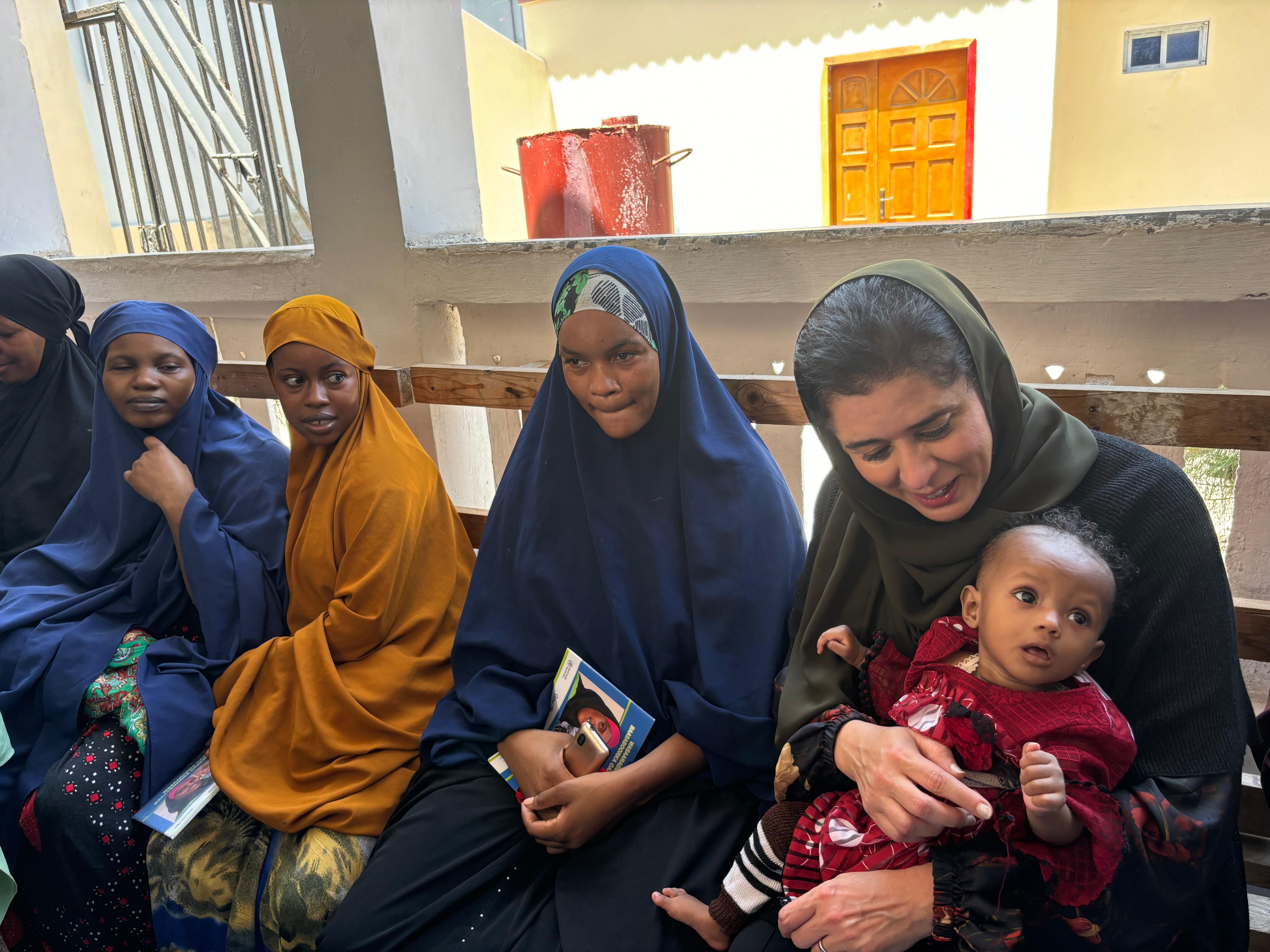
WHO Regional Director, Dr. Hanan Balkhi, embarked on her first visit to Somalia as the Regional Director at a critical time when the country stands at a difficult crossroads. On one hand, Somalia faces enormous challenges, having endured decades of conflict, political turmoil, environmental crises, disease outbreaks, and regional instability. On the other hand, the country harbors signs of change, with leaders showing a commitment to transformation, and citizens, especially those born during the civil war period, expressing a genuine desire to contribute to a promising future for their country.
During her three-day visit to Mogadishu, Dr. Hanan met with various government officials and humanitarian partners, focusing on enhancing support to address the country’s most pressing health issues. She pointed out that health infrastructure is destroyed in many areas, depriving about 40% of Somalis of essential health services. Somalia faces high rates of child mortality and maternal deaths due to preventable causes, attributed to weak health infrastructure and a shortage of skilled medical staff, particularly in remote areas.
Climate and Health Challenges
Somalia is exposed to severe environmental challenges, such as droughts and floods, which significantly impact the population. During the drought between 2022 and 2023, despite proactive efforts by WHO and partners, tens of thousands of children tragically lost their lives, while millions remain at risk of hunger and disease. Dr. Hanan expressed deep concern about the spread of infectious diseases due to a lack of vaccines, with over 1.5 million Somali children not having received any dose of vaccines against diseases like polio and measles, which increases the risk of outbreaks.
At De Martino Hospital in Mogadishu, Dr. Hanan participated in vaccinating a child against polio, symbolizing WHO's commitment, alongside the Ministry of Health and partners, to combating polio outbreaks.
Political Commitment and Partnerships for Health Sector Reform
Dr. Hanan met with Somali Prime Minister Hamza Abdi Barre, who expressed his commitment to eradicating polio through establishing a national task force for immunization and polio eradication. She was also optimistic about the efforts of the polio program, which aims to reach unvaccinated children and improve the quality of polio vaccination campaigns.
Under Somalia's National Transformation Plan 2025-2029, the Somali government is working on health sector reforms, with experts currently developing integrated strategies for health development. During her visit, Dr. Hanan emphasized the need to strengthen health governance and regulations under the federal system, supporting healthcare workers, and developing standards for accrediting healthcare facilities.
Dr. Hanan called for a coordinated approach that considers the various factors impacting public health, such as food, agriculture, water, and sanitation, stressing that building a sustainable health system requires concerted efforts. She highlighted the importance of coordination between UN agencies to improve Somalia’s national planning and collaborate to address public health challenges.
From her on-ground observations, Dr. Hanan expressed her appreciation for humanitarian workers who operate in challenging and unstable conditions. She reaffirmed WHO's commitment to supporting Somalia by providing essential health services and building a resilient and sustainable health system to meet the needs of the Somali people and ensure the health of future generations.
